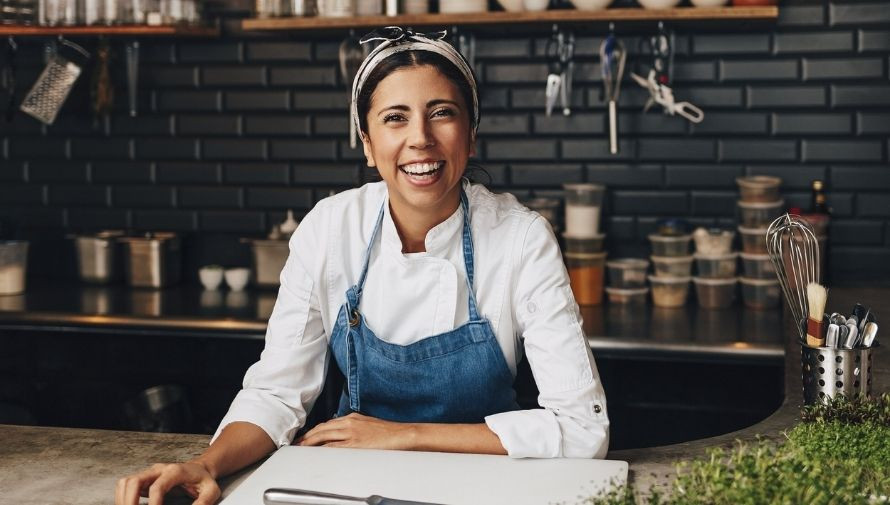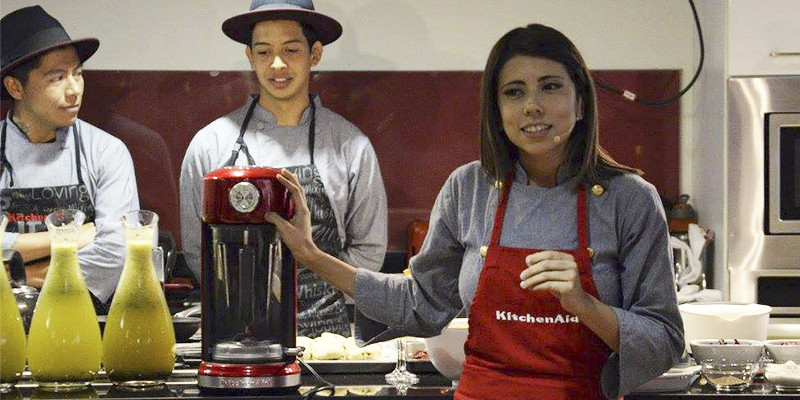Débora Fadul: Guatemalan chef selected among the talents of world cuisine
The Mexican Santiago Lastra, the Chilean Camila Fiol Stephens, the Colombian Juan Pablo Medina, the Brazilian Mariana da Silva Vasconcelos and the Guatemalan Débora Fadul are the representation of the young Latin American talent in the 50 Next Class of 2022, the annual list of young promises in the world of gastronomy, which was presented this Friday in the Spanish city of Bilbao (north).
The list of these entrepreneurs and innovators, proposed by the Spanish University of Gastronomic Sciences Basque Culinary Center as an academic partner in this field for The World's 50 Best Restaurants -promoter of 50 Next-, includes people from 30 territories on all continents linked to gastronomy from cooking, production, technology, education or science.
Each category is unranked and encompasses a broad spectrum of professions, and the people included in
the list are recognized for their overall contribution to the gastronomic ecosystem, as well as for their potential
continuously to drive meaningful positive change.
Among them is the Guatemalan Débora Fadul, in the category of hospitality pioneers, she "wants to show the world the wide potential, diversity and richness of Guatemalan cuisine," emphasizes the organization.
After studying cooking, he founded the catering Chef de Mon Coeur and later the nomadic and seasonal pop-up restaurant EN, with such success that he opened the Diacá restaurant in Guatemala City in 2018, where "he uses food as a means to connect diners with deeper values and meanings, such as nostalgia, ancestral knowledge, the culture of the land and its farmers”.
"The restaurants of the future will be like temples that will connect the inhabitants of the city with the land and rural communities and will function as a feedback loop to motivate, create and share value with everyone," predicts the cook.
Since the origin of her proposal, the land, the people who become the clients and the producers, as well as the kitchen, have been respected, "there is only one rule and that is respect between these three entities and that they always connect", she adds.
“We identify ourselves as a root exploratory kitchen. We focus on the products that grow or are cultivated in Guatemala to explore different expressions of nostalgia, memories and links with the Guatemalan and Latino culture and we use the sensory ecosystem of the Ingredients”, this is how they describe themselves when talking about this peculiar place.
Stand out for their creativity
The Latin talent featured in this list also includes Santiago Lastra who opened Kol restaurant and his mezcal bar in London at the end of 2020, during the lockdowns and changing regulations brought about by the pandemic, after being René Redzepi's right-hand man in Noma Mexico and go through Mugaritz (Spain).
To bring a taste of Mexico to the UK without the air miles and carbon footprint ”he uses local seasonal ingredients, like sea buckthorn to replace lime, seaweed instead of cactus and local grains for tortillas; he only imports corn, chocolate and chiles from his country.
Also the pastry chef Camila Fiol, from Fiol Dulcería, a sweet shop in Santiago de Chile where "she creates innovative sweets with daring combinations, such as milk chocolate cookies and hard Italian cheese, or soft bacon, vanilla and smoked butter caramel", in addition to have a wide range of vegan products, the organization reported today.
Fiol, who worked with chef Rodolfo Guzmán at Boragó, the highest rated Chilean restaurant on the 50 Best lists, worked as a researcher at the Basque Culinary Center's BCC Lab and as a pastry teacher, and in 2012 she opened her own business.
Joining him on the list is Juan Pablo Medina, co-founder and CEO of the Danish bioscience company Kaffe Bueno, whose mission is to help the planet while improving the livelihoods of Colombian coffee farmers.
The company converts coffee grounds from hotels and other companies into cosmetics and nutraceuticals, such as Kaffoil, an active oil for hair care, skin repair and anti-aging products, and Kaffibre, a product rich in protein, potassium and dietary fiber that can be used in baking.
After five years of project, they are working on new products and have received funding for the world's first coffee biorefinery focused on the wellness industry, which they hope to start up in 2023.
“There is room to be good to the planet and the environment, as well as making money for yourself and your shareholders. Lasting change happens that way,” he says.
Mariana da Silva Vasconcelos is the daughter of farmers and is helping to solve the problem of crop tracking for farmers in Latin America as the founder and CEO of Agrosmart, which brings digital agriculture to developing countries with poor internet infrastructure, helping farmers make better decisions about irrigation, weather forecasts and diseases.
Using sensors - widely used in Western Europe but barely implemented in Latin America - environmental conditions are measured and the needs of a crop are identified in real time, which allows productivity to be increased by up to 20% and water saved by 60%.

